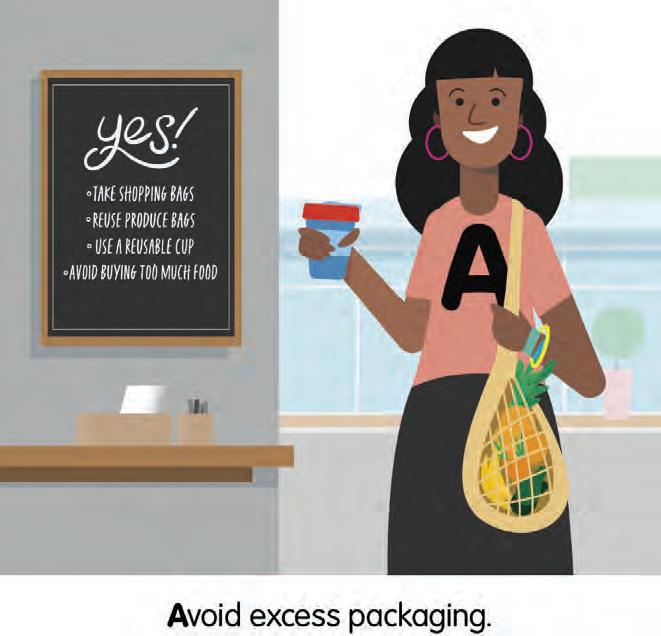
3 minute read
COUNCIL IN FOCUS
Breaking the barriers
THE CITY OF COCKBURN IS HOPING TECHNOLOGY WILL HELP THE COMMUNITY TUNE IN TO ITS LATEST WASTE EDUCATION CAMPAIGN.
A new education program includes videos that show local heroes demonstrating various sorting, recycling and waste reduction methods.
Virtual Reality (VR) headsets and videos featuring local waste champions will be among a suite of tools the City of Cockburn will use to help its Culturally and Linguistically Diverse (CaLD) community learn about the importance of reducing waste.
The city has received a $16,500 State Government Infrastructure and Community Education 2021-22 WasteSorted grant to help with the education program.
It aims to foster waste avoidance by improving waste sorting by the community.
Clare Courtauld, City of Cockburn Waste Education Co-ordinator, said diverting more items from landfill through better waste sorting would help the city achieve its local government targets, as set out in Western Australia’s Waste Strategy. The program will use multilingual waste education kits, games and videos, plus virtual reality tours of recycling and landfill facilities to demonstrate how everyone plays a vital role in preventing rubbish from ending up in landfill.
“There are many alternative uses and streams of recycling for so many products that we all use every day and it can be quite confusing unless you understand the reasons behind this,” Clare says.
“We hope this fun educational opportunity will help people understand why it’s important for the planet and our hip pocket that we all take responsibility for the rubbish we generate.
“From plastics and packaging to paper, bottles, tins and cans that pass through our hands every day, there are lots of ways to recycle these and to reduce
Clare Courtauld, City of Cockburn Waste Education Co-ordinator
our reliance on some of these materials, too.”
Many of the city’s 117,000 residents are culturally and linguistically diverse, with 21.5 per cent speaking languages other than English at home. Nearly three per cent of these people reported difficulty speaking English and both parents of nearly 45 per cent of City of Cockburn residents were born overseas, according to the 2016 Australian Census.
The Be a GREAT Sort waste education program highlights include subtitled virtual reality tours of Henderson Waste Recovery Park and the Suez Material Recovery Facility in Bibra Lake. Clare says the VR tours are great for people unable to attend facility tours in-person.
Subtitled waste education videos featuring local talent will be provided on the City of Cockburn YouTube channel and other online platforms.
Clare says the videos will feature “ordinary people who are already walking the walk when it comes to waste reduction” by correctly sorting their waste for recycling, hence reducing materials being sent unnecessarily to landfill.
“They will help demonstrate various sorting, recycling and waste reduction methods and practices that are easy to include in everyday life to help people embrace choices to promote our personal and community choices and responsibilities when it comes to waste generation and reduction.”
Super-sized waste education games will be developed for local schools, as will waste education toolkits with translations. Some elements of the education program will be available at city events, school incursions and community workshops, and available to loan from the city’s libraries.
The City’s Waste Education team has begun preparing the program, which will be progressively rolled out from early this year.
The Western Australian Government’s Waste Avoidance and Resource Recovery Strategy 2030 sets out a plan to reduce waste generation by 10 per cent per capita by 2025 and 20 per cent by 2030. Aligned with that is increasing material recovery to 70 per cent by 2025, and 75 per cent by 2030.
To help reach the targets, a consistent three-bin kerbside collection system, which includes separation of food organics and garden organics from other waste categories, must be provided by all local governments in the Perth and Peel region by 2025.
Local governments must implement waste plans, which align their waste planning processes with the waste strategy.

For more information, visit: www.cockburn.wa.gov.au
A new program aims to teach the Culturally and Linguistically Diverse (CaLD) community about the importance of reducing waste.



